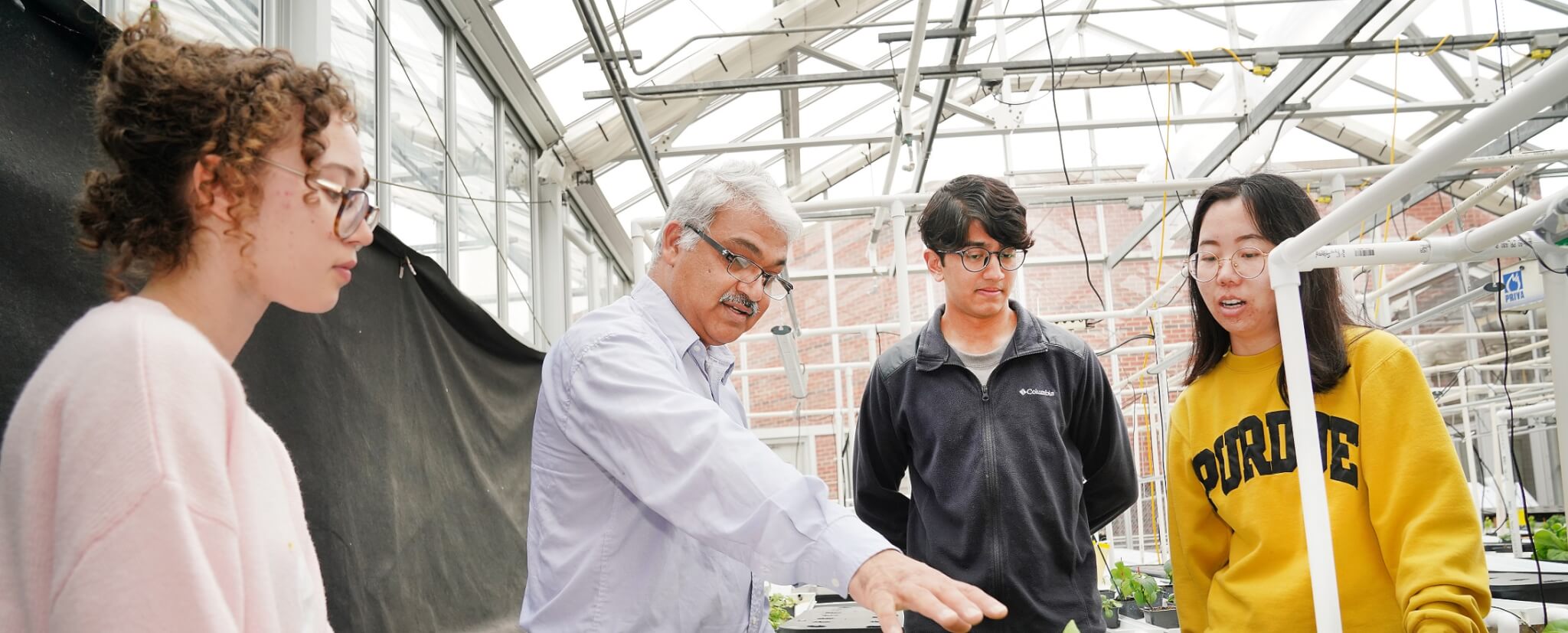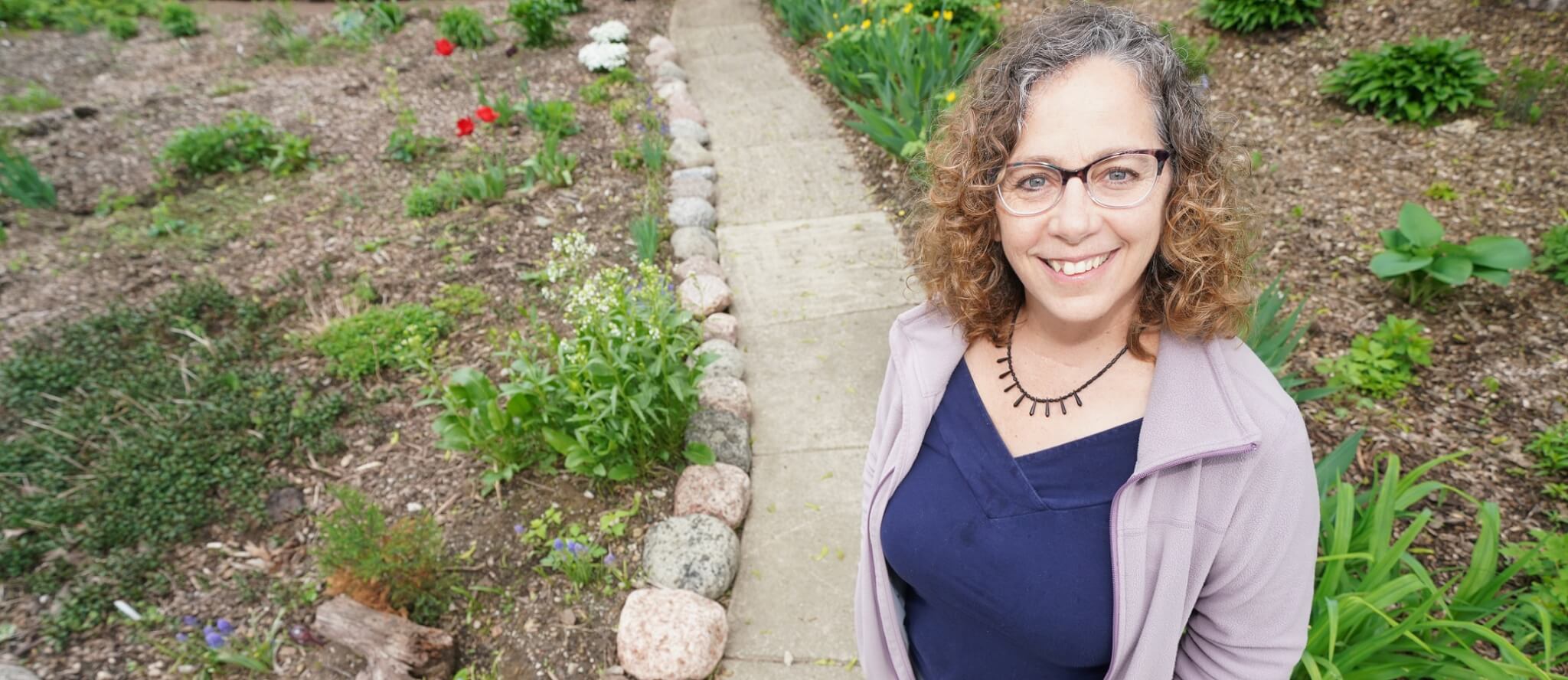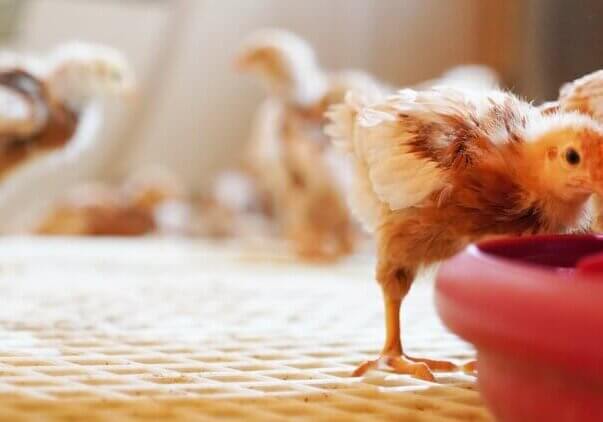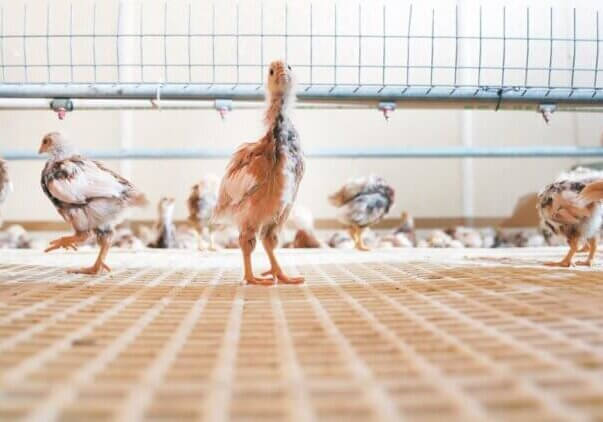F
ounded in 2018, the Unsung Diversity Hero Award is presented annually to a faculty member, staff member and student for their efforts to create an inclusive environment within their department and the college as a whole, going out of their way to lead others by setting a positive example.
With a goal to build and sustain a climate and culture where everyone is included, respected and supported, the College of Agriculture presents this year’s awards to the following individuals.

Faculty Award- Krishna Nemali
In 2018, Krishna Nemali, associate professor in horticulture and landscape architecture, said he had a burning question, but it had nothing to do with plants.
“I wanted to know how many different countries were represented within the HLA family, which turned out to be about 15,” Nemali said. “When I learned that, I wanted to find a way to utilize all of those people from different countries and diverse backgrounds to form a stronger bond.”
Nemali said he wanted people to come together while doing something fun, and it seemed the only time a majority of people within his department were free was during the typical lunch hour, leading to the creation of the Diversity Lunch and Learn series. Showcasing traditional food, dance and clothing, department members would bring in cuisine and music while offering conversation to better understand the values that uniquely identified international members.
“People are so committed to this, and they get really excited because it's an opportunity for them to share about their cultures, their behaviors and their mother country,” Nemali said. “Incorporating diversity and inclusion into programs requires respecting differences and similarities among different cultures, which require a knowledge of different cultures. The lunch series aims to provide that knowledge in a fun way. We hope that this concept is tried by different units in the college.”
Linda Prokopy, professor and department head of HLA, said in her nomination that Nemali was also instrumental in developing a survey to identify the current status of diversity and inclusion within the department.
“Dr. Nemali invests resources to support diversity initiatives in the department by actively recruiting and mentoring student researchers representing many countries including South Korea, China, Nepal, Egypt, Brazil, India, Pakistan, Ghana, Singapore, Sweden, Colombia, Malaysia, Iran and the US,” Prokopy said. “He believes that a diverse team is much more talented and productive at work, a concept that he practically experienced working for many years in a Fortune 100 company. Students in his lab actively work in teams and learn about each other and about different cultures and traditions.”

Staff Award- Tamara Benjamin
For Tamara Benjamin, assistant program leader of Diversified Farming and Food Systems in Purdue Extension, her path to becoming an inclusive champion for diversity was one of self-reconciliation.
After participating in a church book club and reading “The New Jim Crow,” Benjamin said she decided to take the implicit bias test offered by Harvard University, telling you where your implicit biases are. Benjamin said being married to someone from Costa Rica, she went into the test believing she held no bias against any other races, but the test told her otherwise.
“I did the Latin American test first, testing above average with a high preference towards Latin Americans. But when I took the test on implicit bias towards Blacks, it was telling me I was just a step above the bias of a hate group member, and I wanted to throw my computer across the room,” Benjamin said. “It all boils down to the fact that I associate myself with the same people who look like me, think like me, act like me, and to change that, I would have to change all those things.”
And Benjamin said she was determined to change that, leading her to become a volunteer tutor for the Purdue athletics department and being placed with the Purdue football team. Her experience getting to know the students was life changing.
“Just listening to their stories, understanding the struggles that they have keeping up with their studies while being an elite athlete, was humbling," Benjamin said. “I had to really confront my biases, sit in my uncomfortableness, and ask myself why I felt this way. That entire experience led to my changing how I looked at my job.”
To continue increasing diversity in agriculture, Benjamin worked to include more diverse speakers to the Indiana Small Farm Conference and to expand the audience. As a result, Amy Thompson, Purdue Extension’s Monroe County director, said in her nomination, that including speakers of color led to more Black, Indigenous people feeling that the conference was addressing their needs. She also created a series of book studies online during COVID to connect with other educators across the state and organized webinars that focused on how to increase diversity, equity and inclusion in Extension programs.
Benjamin has sought opportunities to address the needs of historically underserved producers, leading to a $90K grant to work with beginning farmers and a $200K grant to work with urban growers in Gary to provide training and support to increase production and consumption of local produce.
“This award feels great to have my work acknowledged, but at the same time, it feels like all of us should be doing these things,” Benjamin said. “It just feels like it's one of those responsibilities we have as a US citizen. We all have rights, but we also have responsibilities to be good citizens of the world.”
![Cordonero3[1] Cordonero](https://ag.purdue.edu/stories/wp-content/uploads/2022/05/Cordonero31-scaled.jpg)
Student Award- Jeanine Auxiliadora Arana Cordonero
Arana Cordonero, a graduate student in HLA, first came to Purdue in 2019 as a visiting scholar in agronomy from Nicaragua through an opportunity to work with Robert Nielsen, professor of agronomy, and James Camberato, professor of agronomy.
After her time as a visiting scholar was done, she decided to seek an opportunity in HLA. Arana Cordonero said she went to Stephen Meyers, assistant professor in HLA, and knocked on his door to introduce herself.
“To be at Purdue was so impactful for me, I wanted to help other visiting scholars have the same experience I did,” Arana Cordonero said.
Arana Cordonero’s mentor Ana Morales, a doctoral student in agronomy, encouraged her to become involved with the visiting scholar committee, where applications for future visiting scholars are reviewed.
Between 2021 and 2022, Arana Cordonero’s efforts have helped match 10 visiting scholars from five different Latin American countries, some of whom have continued on to graduate programs at Purdue. But Arana Cordonero doesn’t stop at matching and recruiting, she also works to find visiting scholars housing opportunities, helping them to create a home away from home.
Arana Cordonero also serves as vice president of the HLA Graduate Student Association (GSA). Through this role and alongside fellow HLA-GSA officers, Arana Cordonero requested funds to support graduate student enrichment and social engagement opportunities.
“Through her efforts, the HLA-GSA has become more inclusive, respectful, and hospitable,” Meyers wrote in his nomination. “Her promotion of weekly coffee breaks before the HLA departmental seminar has encouraged greater collegiality among a diverse group of HLA graduate students and has contributed to more genuine engagement from our students during departmental seminars.”
Purdue Agriculture experts suggest thinking twice before purchasing Easter pets
Dating back centuries as a sign of fertility and new life, chicks and rabbits have been identified with Easter and spring décor, making their seasonal arrival in most farm supply stores a tempting purchase.
Read Full Story >>>New and improved cherry flavor courtesy of the petunia flower
That cherry flavor you enjoy in candy and soda is likely a combination of aromatic and flavor compounds discovered through study of plants in laboratories far from cherry trees. It and the sweet scent of your almond extract may actually be courtesy of a petunia flower.
Read Full Story >>>Through the hen’s eyes: $1 million grant to improve cage-free housing for egg laying
Just over one third of the United States egg laying industry currently produces in cage-free environments, while companies pledge to use more ethically sourced ingredients in their production processes.
Read Full Story >>>

